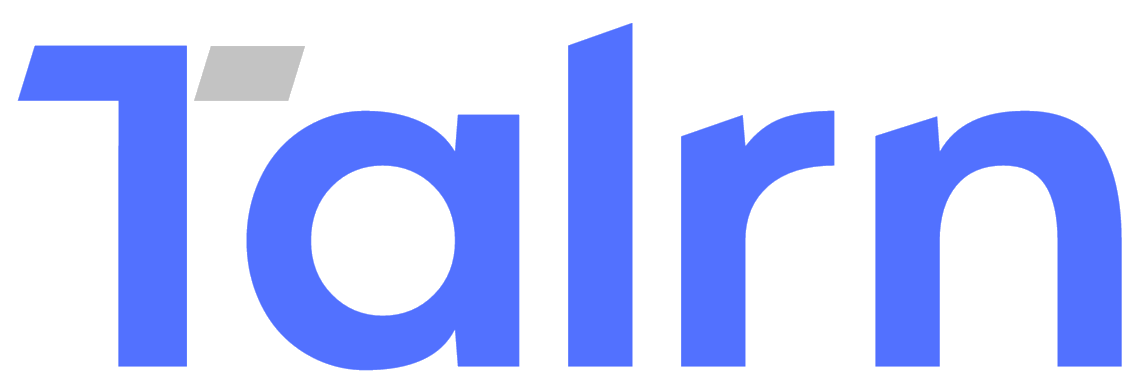The healthcare cloud security paradox
The healthcare cloud security paradox refers to the balancing act between the benefits and challenges of using cloud technology in the healthcare industry. While cloud technology offers many benefits, it also introduces new security risks and the need to comply with regulatory requirements. To effectively navigate this paradox, healthcare organizations need to carefully assess their needs and choose a cloud provider that can meet their security and compliance requirements, implement strong security measures, and have a robust data breach response plan in place. By doing so, they can effectively use cloud technology to improve healthcare delivery while also protecting sensitive patient data.
Cloud computing has revolutionized the way healthcare organizations store and access data, enabling them to operate more efficiently and effectively. However, as with any technology, there are also security risks to consider. The healthcare industry is particularly sensitive when it comes to data security, as it deals with highly confidential and personal information. In this article, we will explore the healthcare cloud security paradox, looking at the benefits and challenges of using cloud technology in the healthcare sector.
One of the main benefits of using cloud technology in healthcare is the ability to store and access data from any location with an internet connection. This can be particularly useful for healthcare professionals who need to access patient records while on the go, or for patients who want to access their own medical information from home. Cloud technology also allows for real-time data sharing and collaboration, enabling healthcare professionals to work together more efficiently and effectively.
However, the use of cloud technology also introduces new security risks. The healthcare industry is a prime target for cyberattacks, as hackers know that healthcare organizations often have valuable personal and financial information on their patients. In addition, the healthcare industry is subject to strict regulations, such as the Health Insurance Portability and Accountability Act (HIPAA), which require organizations to protect patient data from unauthorized access.
One of the main challenges of using cloud technology in healthcare is ensuring that data is secure and compliant with regulatory requirements. Cloud providers must implement strong security measures to protect data from cyber threats and ensure that data is only accessed by authorized individuals. Healthcare organizations also need to carefully manage their own data and ensure that it is stored and accessed in a secure manner.
The healthcare cloud security paradox refers to the balancing act between the benefits and challenges of using cloud technology in healthcare. On one hand, cloud technology offers many benefits, including the ability to access and share data from any location and real-time collaboration. On the other hand, there are significant security risks to consider, including the risk of cyberattacks and the need to comply with regulatory requirements.
To address these challenges, healthcare organizations need to carefully assess their needs and choose a cloud provider that can meet their security and compliance requirements. They also need to implement strong security measures, such as multi-factor authentication, encryption, and regular security audits, to protect data from cyber threats. By carefully managing their data and implementing strong security measures, healthcare organizations can effectively navigate the healthcare cloud security paradox and reap the benefits of cloud technology while also protecting sensitive patient data.
Another aspect of the healthcare cloud security paradox is the potential for data breaches and the impact they can have on patient trust and privacy. Data breaches can occur due to cyberattacks, human error, or other factors, and they can have serious consequences for healthcare organizations and their patients. In addition to the potential financial impact of data breaches, healthcare organizations may also face legal and regulatory consequences, as well as damage to their reputation and loss of patient trust.
To mitigate the risk of data breaches, healthcare organizations need to implement strong security measures and regularly review and update their security protocols. They also need to have a robust data breach response plan in place to quickly and effectively address any incidents that may occur.
It's important to note that the healthcare cloud security paradox is not unique to the healthcare industry. Many other industries also face similar challenges when it comes to using cloud technology, as they need to balance the benefits of cloud computing with the need to protect sensitive data. However, the healthcare industry has some unique challenges when it comes to data security, such as the need to comply with strict regulatory requirements and the sensitive nature of the data being stored and accessed.

One way that healthcare organizations can address these challenges is by choosing a reputable and secure cloud provider. It's important to carefully research and compare different cloud providers to find one that meets your security and compliance needs. This may involve looking for providers that have strong security measures in place, such as encryption, multi-factor authentication, and regular security audits. It may also involve looking for providers that are compliant with relevant regulations, such as HIPAA.
Another way that healthcare organizations can address the healthcare cloud security paradox is by implementing strong security measures on their own end. This may involve training employees on cybersecurity best practices, implementing multi-factor authentication for access to sensitive data, and regularly reviewing and updating security protocols.
In addition to these measures, healthcare organizations may also want to consider partnering with a security firm or consulting with cybersecurity experts to assess their security posture and identify any potential vulnerabilities. By working with experts, healthcare organizations can get an objective view of their security measures and make any necessary improvements to better protect their data.
Another important aspect of the healthcare cloud security paradox is the role of regulatory bodies in ensuring the security of healthcare data. In the United States, HIPAA is the main regulatory body that oversees the security of healthcare data, setting standards for the protection of personal health information (PHI). HIPAA requires healthcare organizations to implement appropriate administrative, technical, and physical safeguards to protect PHI from unauthorized access, use, and disclosure.
HIPAA also requires healthcare organizations to conduct regular risk assessments to identify potential vulnerabilities and take steps to address them. This may involve implementing strong security measures, such as encryption and multi-factor authentication, and regularly reviewing and updating security protocols. HIPAA also requires healthcare organizations to have a robust data breach response plan in place to quickly and effectively address any incidents that may occur.
In addition to HIPAA, there are also other regulatory bodies that oversee the security of healthcare data, depending on the country or region. For example, in the European Union, the General Data Protection Regulation (GDPR) sets standards for the protection of personal data, including healthcare data.
By complying with regulatory requirements, healthcare organizations can help ensure the security of their data and protect the privacy of their patients. However, compliance with regulatory requirements is just one aspect of addressing the healthcare cloud security paradox. Healthcare organizations also need to implement strong security measures and regularly review and update their security protocols to ensure the ongoing security of their data.
Regulatory bodies play an important role in ensuring the security of healthcare data by setting standards for the protection of PHI and requiring healthcare organizations to implement appropriate safeguards. By complying with regulatory requirements and implementing strong security measures, healthcare organizations can effectively navigate the healthcare cloud security paradox and use cloud technology to improve healthcare delivery while also protecting sensitive patient data.

One way that healthcare organizations can address the healthcare cloud security paradox is by implementing a strong cybersecurity program. A strong cybersecurity program can help healthcare organizations protect their data and comply with regulatory requirements by implementing a set of best practices and procedures for securing sensitive data.
Some key elements of a strong cybersecurity program may include:
- Employee training and awareness: Ensuring that all employees are trained on cybersecurity best practices and aware of the potential risks to data security can help reduce the risk of data breaches. This may involve providing regular training on topics such as phishing attacks, password management, and data handling.
- Multi-factor authentication: Implementing multi-factor authentication for access to sensitive data can help prevent unauthorized access to data. This may involve requiring users to provide a second form of authentication, such as a fingerprint or security token, in addition to a password.
- Encryption: Encrypting data can help protect it from unauthorized access and ensure that it is only accessible to authorized individuals. This may involve using encryption software to encode data or using encrypted communication channels to transmit data.
- Regular security audits: Conducting regular security audits can help identify potential vulnerabilities and ensure that data is being stored and accessed securely. This may involve reviewing security protocols, conducting penetration testing, and analyzing logs for any unusual activity.
By implementing a strong cybersecurity program and regularly reviewing and updating security protocols, healthcare organizations can effectively address the healthcare cloud security paradox and use cloud technology to improve healthcare delivery while also protecting sensitive patient data.
While cloud technology offers many benefits, including the ability to access and share data from any location and real-time collaboration, it also introduces new security risks and the need to comply with regulatory requirements. To effectively navigate this paradox, healthcare organizations need to carefully assess their needs and choose a cloud provider that can meet their security and compliance requirements, implement strong security measures, and have a robust data breach response plan in place.
In addition to implementing strong security measures, cloud providers should also have a robust data breach response plan in place to quickly and effectively address any incidents that may occur. This may involve working with healthcare organizations to assess the impact of a data breach, implementing remediation measures, and communicating with relevant parties, such as regulatory bodies and affected patients.
The healthcare cloud security paradox is a complex issue that requires careful consideration and planning. By choosing a reputable and secure cloud provider, implementing strong security measures, and seeking expert guidance when necessary, healthcare organizations can effectively use cloud technology to improve healthcare delivery while also protecting sensitive patient data.
Scale your technical team with Talrn
Talrn is an exclusive staff augmentation company for developers, carrying vast experience in crafting digital success stories for companies.
Hire immediately available developers & onboard them instantly, at zero effective cost. Contact hello@talrn.com for more information.

